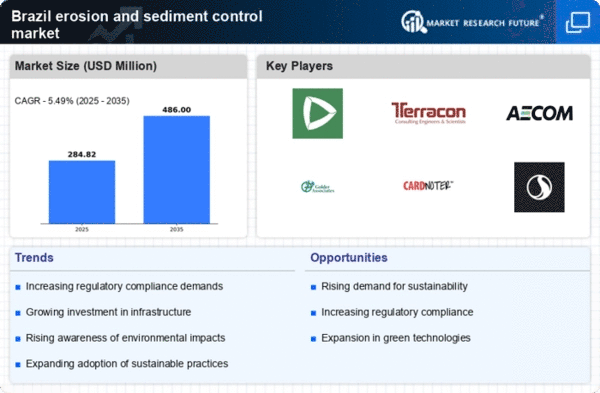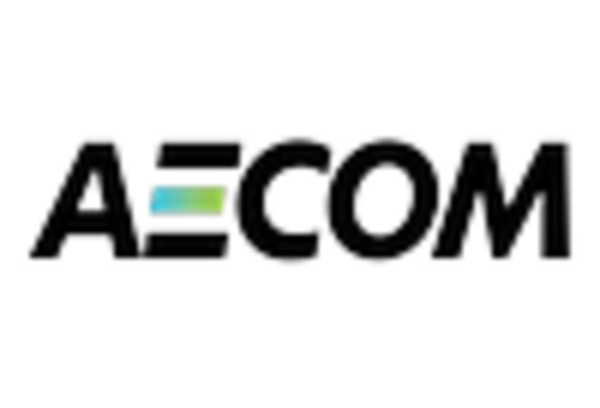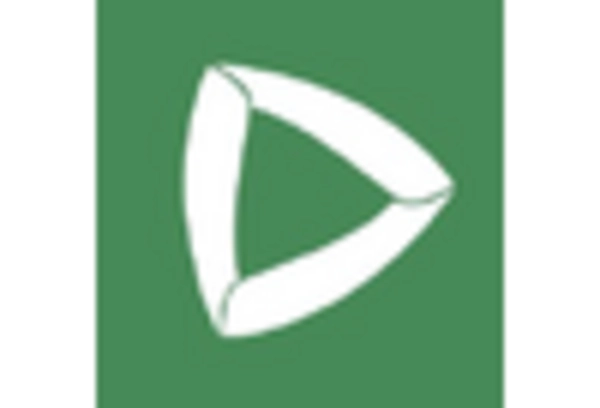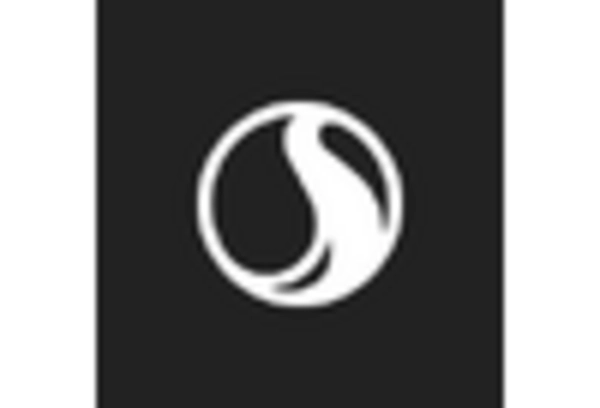Government Initiatives and Funding
The Brazilian government has recognized the importance of addressing erosion and sedimentation issues, leading to various initiatives aimed at promoting sustainable land management practices. Funding programs and incentives for erosion control projects are being introduced, which directly impact the erosion and-sediment-control market. Recent reports indicate that government investments in environmental protection have increased by 15% over the past year, reflecting a commitment to enhancing soil conservation efforts. This financial support is likely to stimulate market growth as companies develop and implement effective erosion control solutions.
Climate Change and Extreme Weather Events
Brazil's vulnerability to climate change is becoming increasingly apparent, with rising temperatures and unpredictable rainfall patterns. These changes contribute to more frequent and severe weather events, such as heavy rainfall and flooding, which can lead to significant erosion and sedimentation. The erosion and-sediment-control market is responding to this challenge by developing products and strategies that can withstand extreme conditions. For instance, the market is projected to grow by 4% annually as stakeholders seek to implement adaptive measures to combat the effects of climate change on soil and water resources.
Agricultural Practices and Soil Conservation
Agriculture plays a crucial role in Brazil's economy, and the need for sustainable farming practices is driving the erosion and-sediment-control market. Farmers are increasingly adopting soil conservation techniques to prevent erosion, improve crop yields, and maintain soil health. The market is witnessing a shift towards eco-friendly erosion control products, such as biodegradable mats and natural barriers. With approximately 30% of Brazil's land used for agriculture, the demand for effective erosion control solutions is expected to rise, as farmers seek to comply with environmental regulations and enhance productivity.
Public Awareness and Environmental Education
There is a growing awareness among the Brazilian public regarding the importance of environmental conservation, which is influencing the erosion and-sediment-control market. Educational campaigns and community initiatives are promoting the understanding of erosion issues and the need for effective control measures. This heightened awareness is likely to lead to increased demand for erosion control products and services. As communities become more engaged in environmental stewardship, the erosion and-sediment-control market may experience a surge in interest and investment, fostering innovation and the development of new solutions.
Increasing Urbanization and Infrastructure Development
The rapid urbanization in Brazil is a key driver for the erosion and-sediment-control market. As cities expand, the demand for infrastructure projects such as roads, bridges, and buildings increases. This growth often leads to land disturbance, which can exacerbate erosion and sedimentation issues. According to recent data, urban areas in Brazil have grown by approximately 2.5% annually, necessitating effective erosion control measures to protect water bodies and maintain soil integrity. The erosion and-sediment-control market is likely to see heightened demand for innovative solutions that can mitigate the impacts of construction activities on the environment.
















